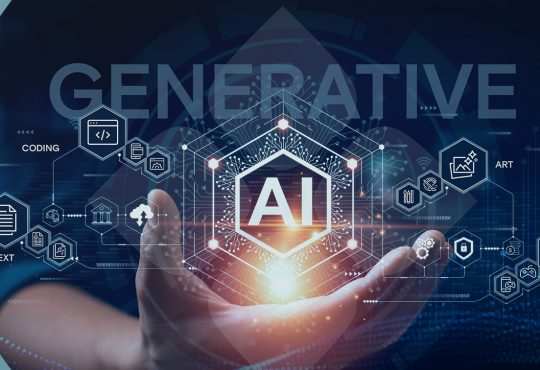By Sushree Panda
The demand for skilled individuals in Artificial Intelligence (AI) is skyrocketing. Industries across sectors are increasingly adopting AI, creating a surge in the need for professionals with the right skill sets.
According to estimates, AI could see global gross domestic product (GDP) growing by $15.7 trillion by 2030.
If you’re aspiring to land a good job in AI, it’s imperative to master certain essential skill sets. This blog delves into the key competencies that can pave the way for a thriving career in AI.
Programming proficiency: The bedrock of AI
The foundation of AI lies in programming and expertise in languages such as Python, R, and Java. Python, in particular, has become a universal language in AI due to its simplicity and adaptability. Python’s popularity in AI is attributable to its extensive libraries like NumPy and Pandas, which facilitate streamlined tasks. Python’s readability and concise syntax make it an ideal language for prototyping and implementing AI algorithms.
Mastering Machine Learning
Machine Learning (ML) is the backbone of AI jobs. For a good job in AI, concepts such as supervised learning, unsupervised learning, and reinforcement learning should become second nature to AI job aspirants. The former includes algorithms like linear regression, decision trees, and support vector machines, and the latter clustering and dimensionality reduction. Familiarity with ML frameworks like TensorFlow and PyTorch can be helpful.
Data science skills: Navigating the sea of information
To innovate in AI, expertise in data manipulation and analysis tools, including Pandas and NumPy, is necessary. Meaningful insights can be extracted from a sound understanding of data preprocessing, cleaning, and feature engineering. You would also need to know exploratory data analysis (EDA) to help uncover patterns and trends within data, besides visualisation tools like Matplotlib and Seaborn to convey complex information in a comprehensible manner.
Deep Learning: Unravelling the complexity
While ML lays the groundwork, Deep Learning takes AI jobs to unprecedented heights. Neural networks, convolutional neural networks (CNNs), recurrent neural networks (RNNs), and tools like Keras and TensorFlow, designed for deep learning, can help you implement intricate models.
Learning the applications of deep learning, such as image and speech recognition, natural language processing (NLP), and autonomous systems, will prove vital.
NLP: Communicating with machines
In an era of conversational AI and chatbots, NLP helps you understand how machines interpret and generate human-like language. Libraries such as NLTK and SpaCy will help get you hands-on experience with sentiment analysis, language translation, and text summarisation. Knowledge of the role of bias in NLP algorithms and the applications of NLP in virtual assistants, search engines, and sentiment analysis will go a long way.
Computer Vision: Seeing the world through AI’s eyes
Computer Vision showcases AI’s ability to interpret visual data. Image recognition, object detection, image segmentation, OpenCV, and Scikit-Image are invaluable tools for honing your AI skills.
Big Data technologies: Handling the information avalanche
With the growth of AI applications, the ability to handle massive datasets is becoming crucial. Proficiency in big data technologies such as Apache Hadoop and Apache Spark and harnessing the power of distributed computing to process and analyse data efficiently are gaining currency.
Knowledge of recommendation systems and predictive analytics, challenges in managing and processing large datasets, and the role of cloud computing in alleviating these challenges are important.
Problem-solving aptitude
AI professionals, by definition, are problem-solvers. So, for AI jobs, one needs to develop a strong aptitude for critical thinking and problem-solving. Take part in coding challenges and real-world projects to learn how to apply AI techniques to solve diverse problems.
Business acumen: Bridging the gap between tech and strategy
AI is not just about algorithms; it’s about solving real-world problems for businesses. AI job seekers need to understand how AI aligns with organisational goals. The ability to communicate complex technical concepts to non-technical stakeholders sets successful AI professionals apart.
You need to understand the role of AI in driving business innovation and competitiveness, learn to integrate AI solutions into existing business processes and create a cohesive strategy. Case studies of companies leveraging AI for strategic decision-making and market advantage will lend perspective.
Continuous learning: The key to staying ahead
To be successful in AI, you need to develop a mindset to continuously learn. Stay updated with the latest research papers, attend conferences, and engage with the vibrant AI community through forums and social media.
Crafting your path to success
In the competitive world of AI, mastering these skills will reward you immensely. Remember, AI is not just about technology; it is about leveraging technology to solve real-world problems and drive positive change. As you embark on this exciting adventure, equip yourself with the right skills, stay committed to lifelong learning, and watch the doors to a thriving AI career swing open.
Varthana aims to simplify your educational journey by offering tailored education loans. Whether you need collateral-free options, larger projects with collateral, or diverse collateral choices, Varthana has you covered. Benefit from flexible EMI plans that suit your finances. Experience a quick and efficient loan process within 5-7 working days after document submission. Apply Now to kickstart your educational path!
(The author is Sushree Panda, Sr. VP & Head – Marketing & Communications, and the views expressed in this article are his own)






